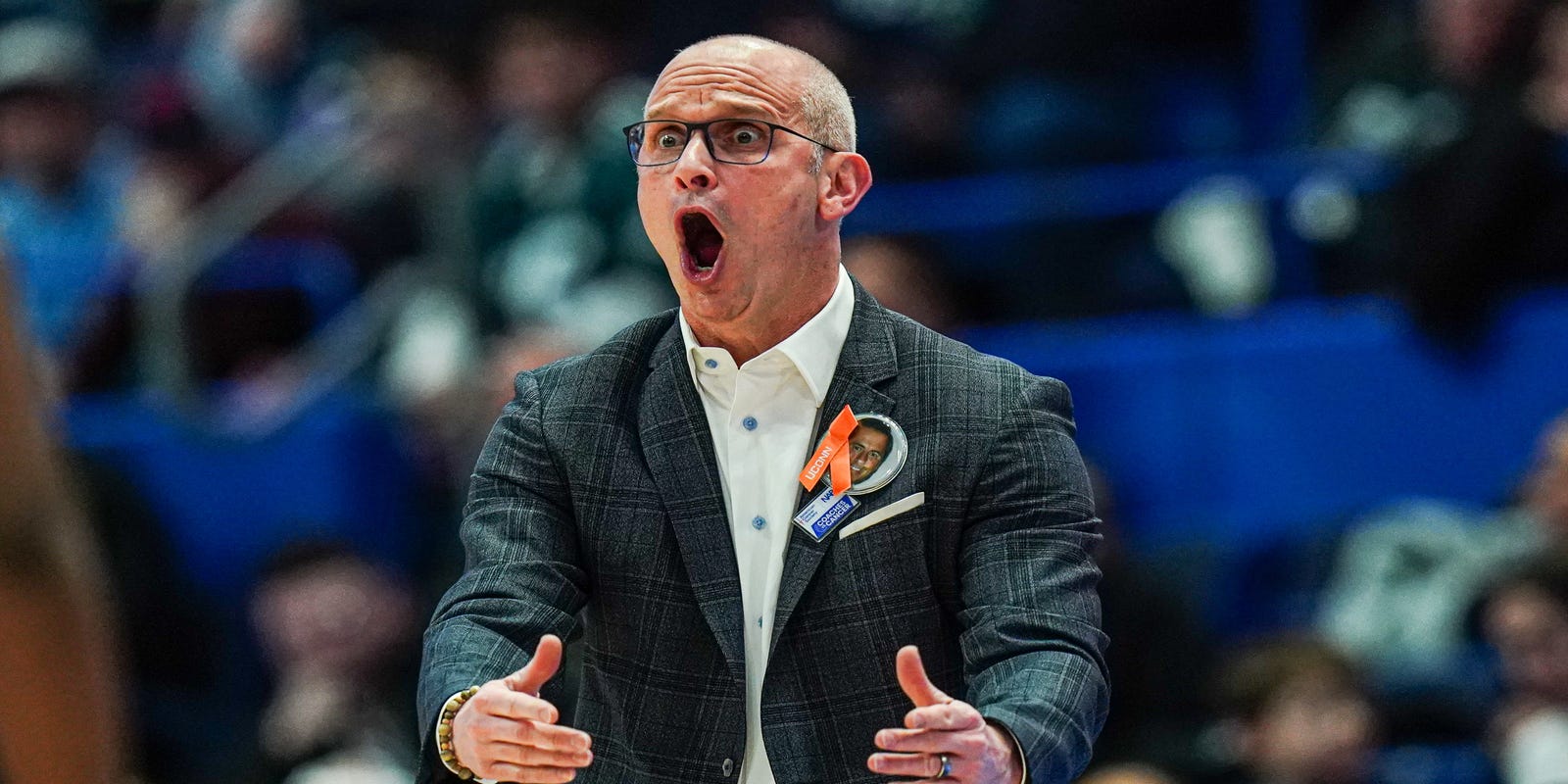Hubris Backfires: UConn's Hurley Faces Unexpected Slump After Bold Coaching Claim

In a surprising turn of events, the UConn Huskies have hit a rough patch following head coach Dan Hurley's bold proclamation about his coaching prowess. Since Hurley's heated exchange with an official, where he confidently declared himself the "best coach in the f---ing sport," the team has struggled, compiling a disappointing 4-4 record.
The Huskies' recent loss to St. John's on Sunday has only added fuel to the fire, highlighting the challenges the team is currently facing. What began as a moment of passionate self-assurance has seemingly translated into a period of inconsistent performance for the defending national champions.
This unexpected slump has raised eyebrows among fans and analysts alike, who are now closely watching how Hurley and his team will respond to this challenging stretch. The coach's fiery statement, intended to showcase confidence, now appears to be a potential turning point in the team's season trajectory.

